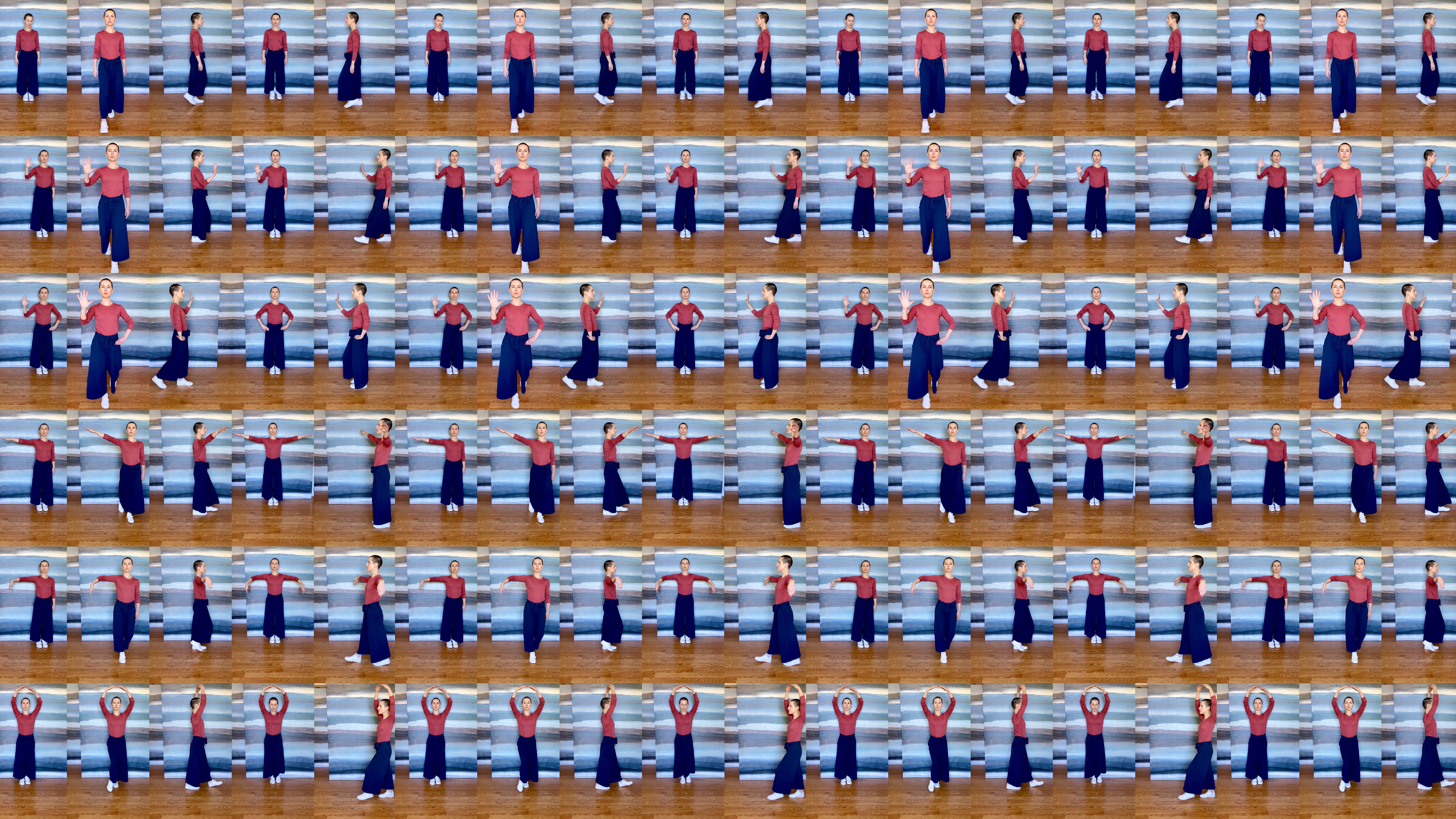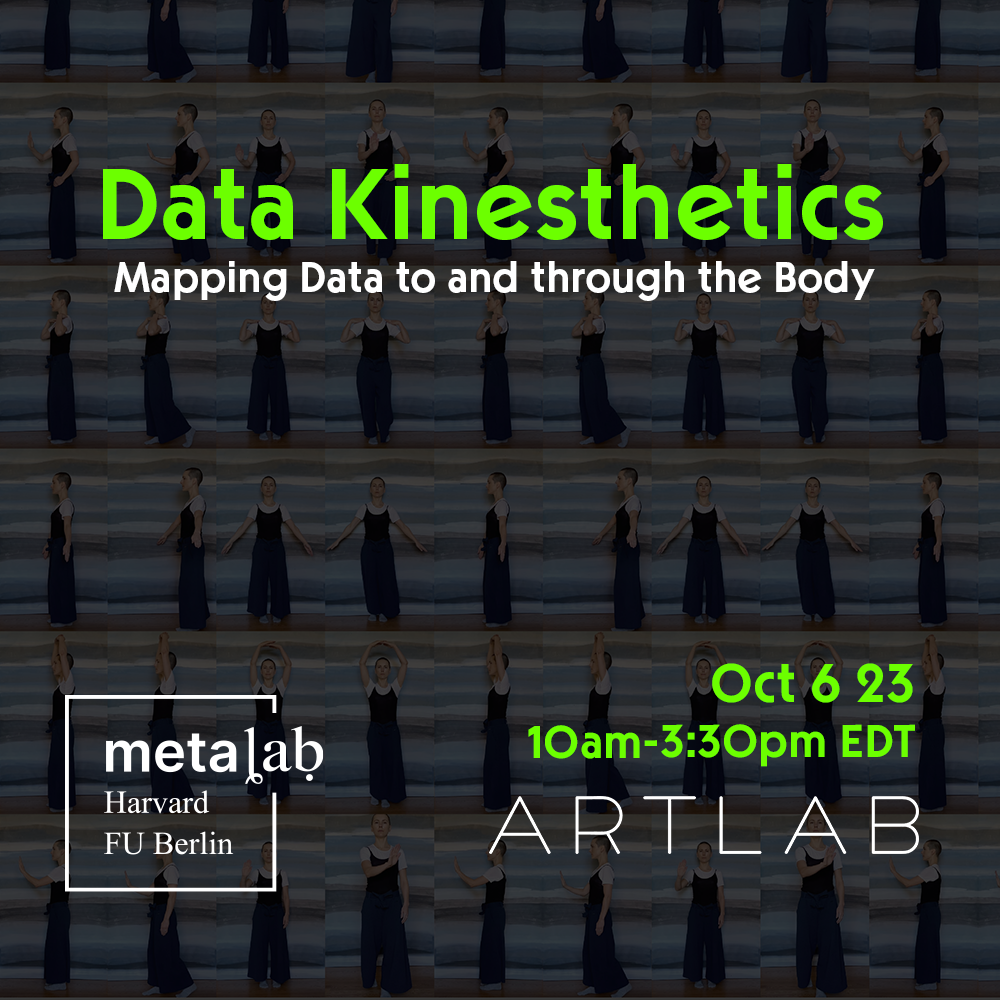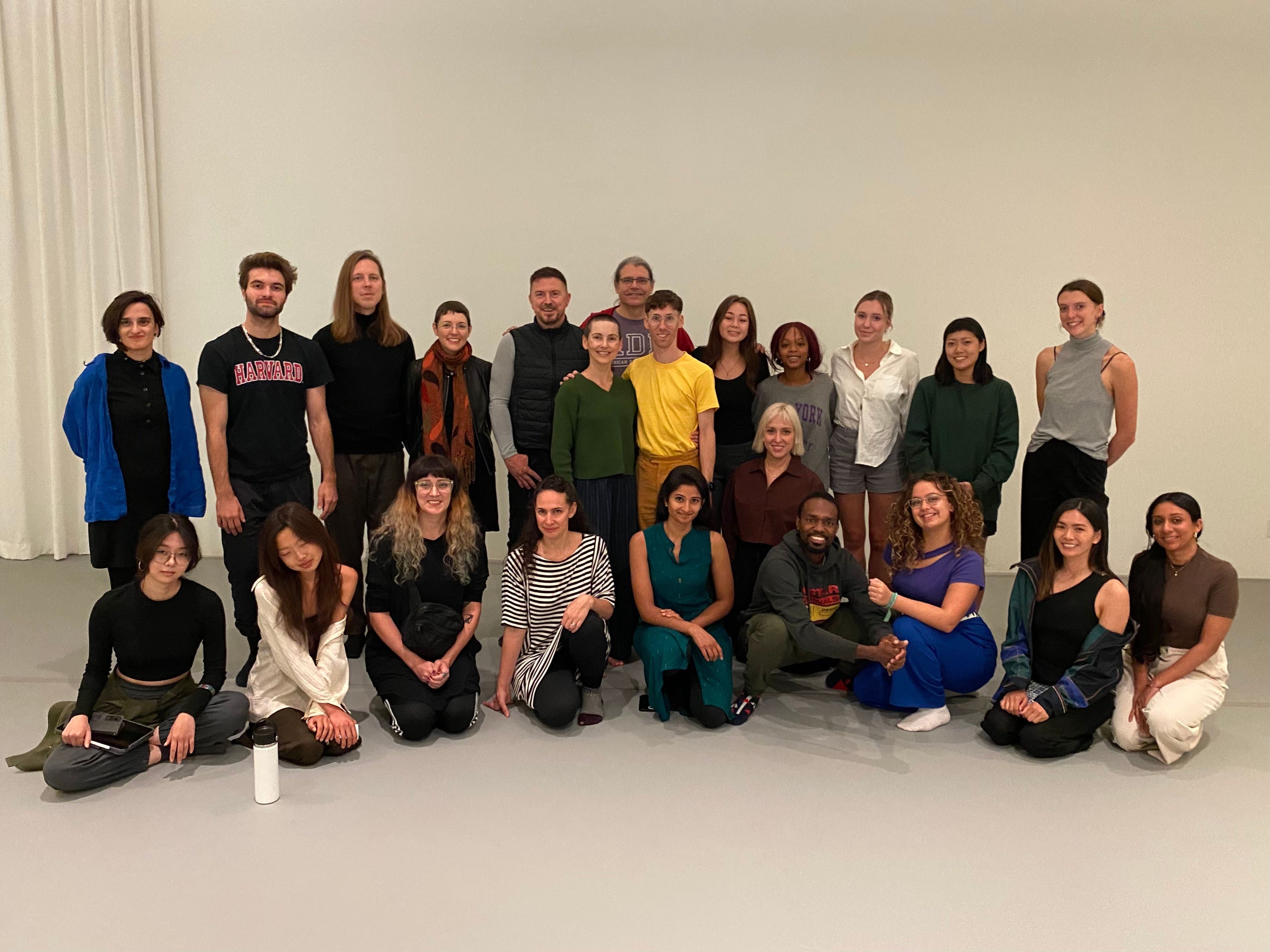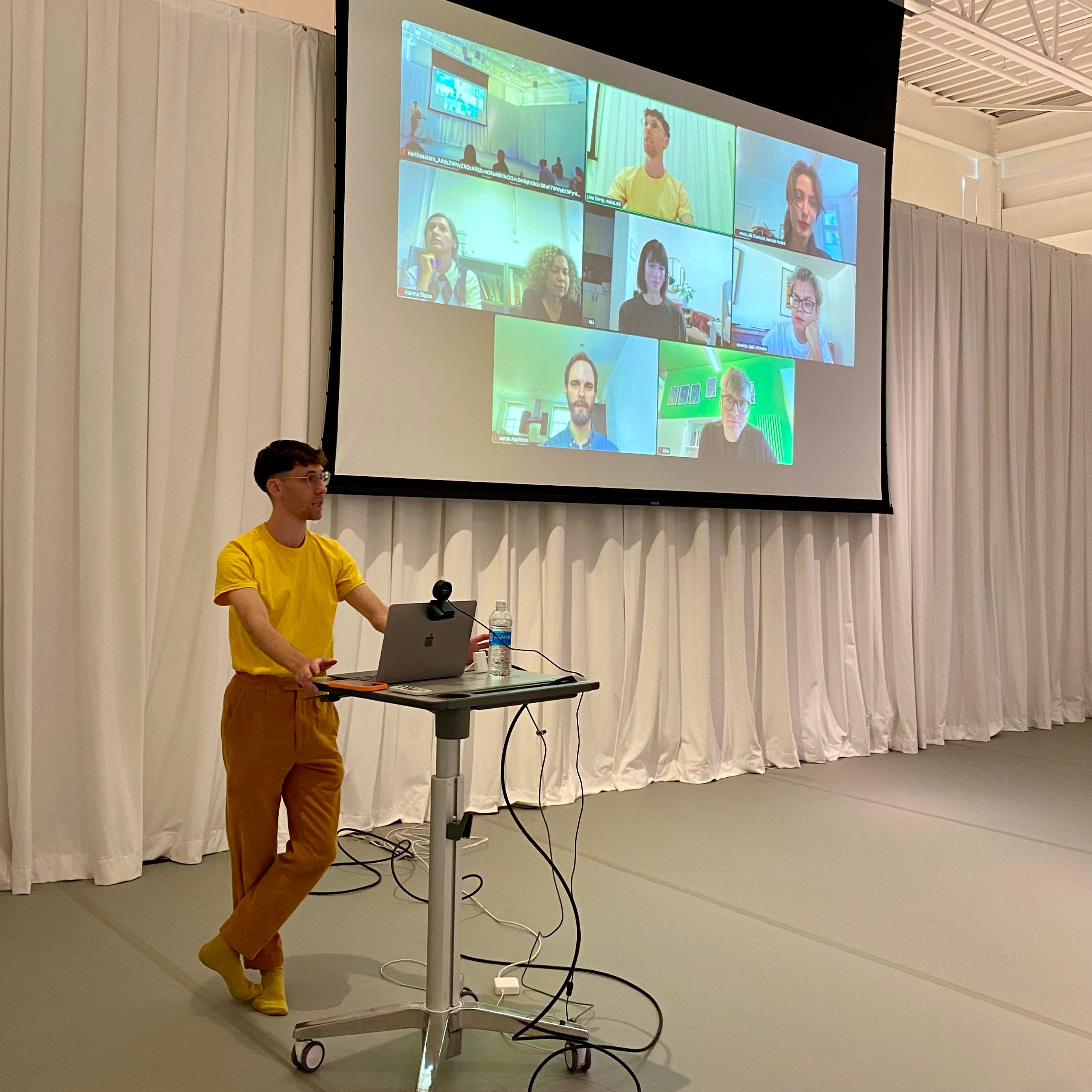Data Kinesthetics
Mapping Data to and through the Body
How can performance research help us make sense of abstract data, whether through choreographing a dataset, visualizing a dance as data, or interrogating training sets in the studio?- Type
- Seminar
- Location
- Cambridge/online

Vimeo from Lins Derry’s opening talk at the symposium.
Friday, October 6, 2023 at the ArtLab, Harvard University and on Zoom
9:30 am*: arrive + breakfast
10:00 - 10:30 am: opening remarks + presentation (hybrid)
10:30 am - 12:00 pm: movement workshop (hybrid)
12 - 1 pm: lunch break
1:00 - 3:30 pm: exposition + discussion (in-person)
- Schedule is in Eastern Daylight Time/Boston
How can performance research help us make sense of abstract data, whether through choreographing a dataset, visualizing a dance as data, or interrogating training sets in the studio? Gathering at the ArtLab at Harvard, artist-researchers from the following labs and projects will explore the question via lecture, a movement workshop, performance, and discussion: metaLAB (at) Harvard & FU Berlin, the Partnering Lab at Northeastern, The Data Fluencies Theatre Project at Emerson, the Harvard BIONICs Lab, and the Visceral Histories, Visual Arguments: Dance-Based Approaches to Data project at the University of London & Ohio State University. A truly embodied symposium emphasizing community-building around topics of data kinesthetics, choreographic interfaces, and AI ethics, we welcome other researchers, students, and the curious to reach out about joining by completing this Google Form.
The day will begin with an overview on mapping data to and through the body in design and dance contexts, followed by a round of data kinesthetics exercises led by the day’s presenters. During the workshop portion, participants will have the opportunity to experience diverse methods for choreographing datasets, computationally sensing the body as data, and critically responding to data-driven systems like AI. As part one of two such workshops facilitated by metaLAB with an eye toward climate change, an added focus will be on how data kinesthetics as a practice can engage environmental datasets. Data choreographies by Lins Derry, Ilya Vidrin and more will then be performed for further reflection. The day will feature an exposition of completed and emerging works, providing ample time to surface and discuss lexical, methodological, and ethical intersections of data and dance.
Key participants (alphabetically listed):
Lins Derry (co-organizer), Principal at metaLAB (at) Harvard. Derry is a choreographic designer working in the domains of human-computer interaction, data communication, and dance. Her current project, Data Sensorium, seeks to make scientific information more communicative in the public domain by translating datasets into movement scores for performance.
Isabelle Edgar is a writer and dancer from Woods Hole, MA currently studying at Stanford University. She collaborates with Lins Derry on project Data Sensorium, a transmedia performance work that expresses migratory data through movement and graphics.
Kate Elswit, Professor of Performance and Technology at the University of London and Principal Investigator for Visceral Histories, Visual Arguments: Dance-Based Approaches to Data and Dunham’s Data: Katherine Dunham and Digital Methods for Dance Historical Inquiry. Elswit is an academic and dancer whose research on performing bodies combines dance history, performance studies theory, cultural studies, experimental practice, and technology. Together with Harmony Bench, she has been working on the kinds of questions and problems that make the analysis and visualization of data meaningful for dance historical inquiry.
Katherine Helen-Fisher, Visiting Assistant Arts Professor at New York University’s Tisch Collaborative Arts program. Fisher is an Emmy-Award-Nominated director and choreographer researching the integration of dance and technology. As Creative Director of Safety Third and Choreographer with the Data Fluencies Theatre Project, Fisher specializes in crafting immersive, non-linear performance installations which use choreographic interfaces to investigate complex dialogues around power, representation, access, and the evolving authorship in the realm of emerging technology.
Ioana Jucan, Assistant Professor of Social and Cultural Inquiry at Emerson College and Principal Investigator for The Data Fluencies Theatre Project. Jucan is a scholar, artist, and writer, working across the fields of performance, media studies, and philosophy. Her current research follows several intersecting threads: media epistemologies and mechanisms of knowledge, affect, and value production in the age of “post-truth” and big data.
Shriya Srinivasan, Assistant Professor of Bioengineering at Harvard University and Director of the Harvard BIONICs Lab and the Anubhava Dance Company. Srinivasan is a bioengineer and an accomplished Bharathanatyam dancer and choreographer. Creatively, she investigates the capability of wearable haptic interfaces to improve the transmission of dance to students and audience via sensory feedback.
Ilya Vidrin (co-organizer), Assistant Professor of Creative Practice Research at Northeastern University and Director of the Partnering Lab. Vidrin is a research-practitioner situated at the nexus of performing arts, ethics, and interactive media. He conducts formal and practice-based research on ethical physical interaction, using specialized wearable technology for kinesthetic motion capture.






